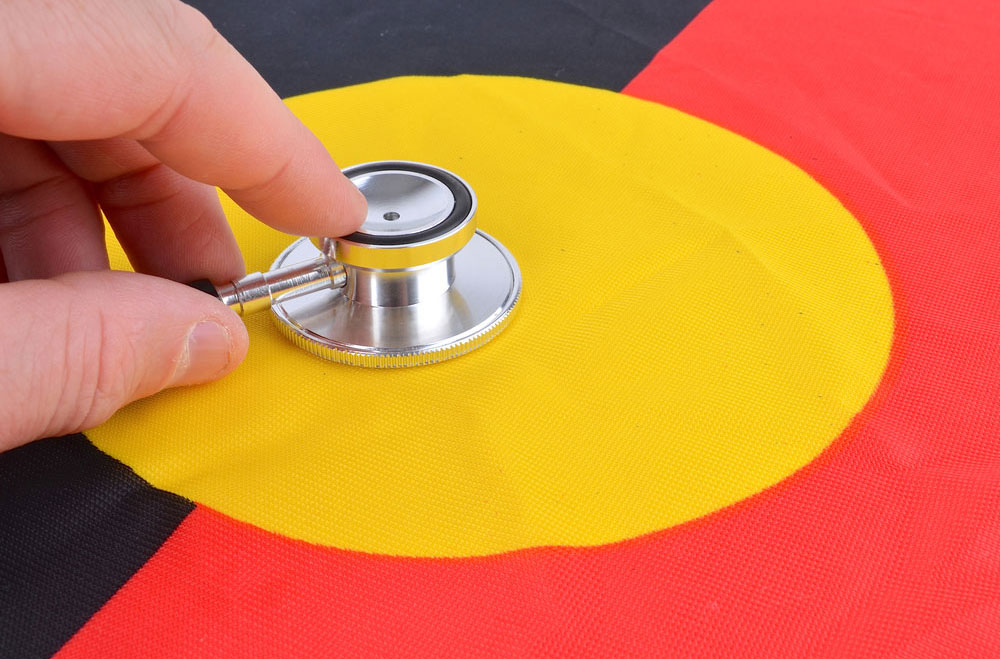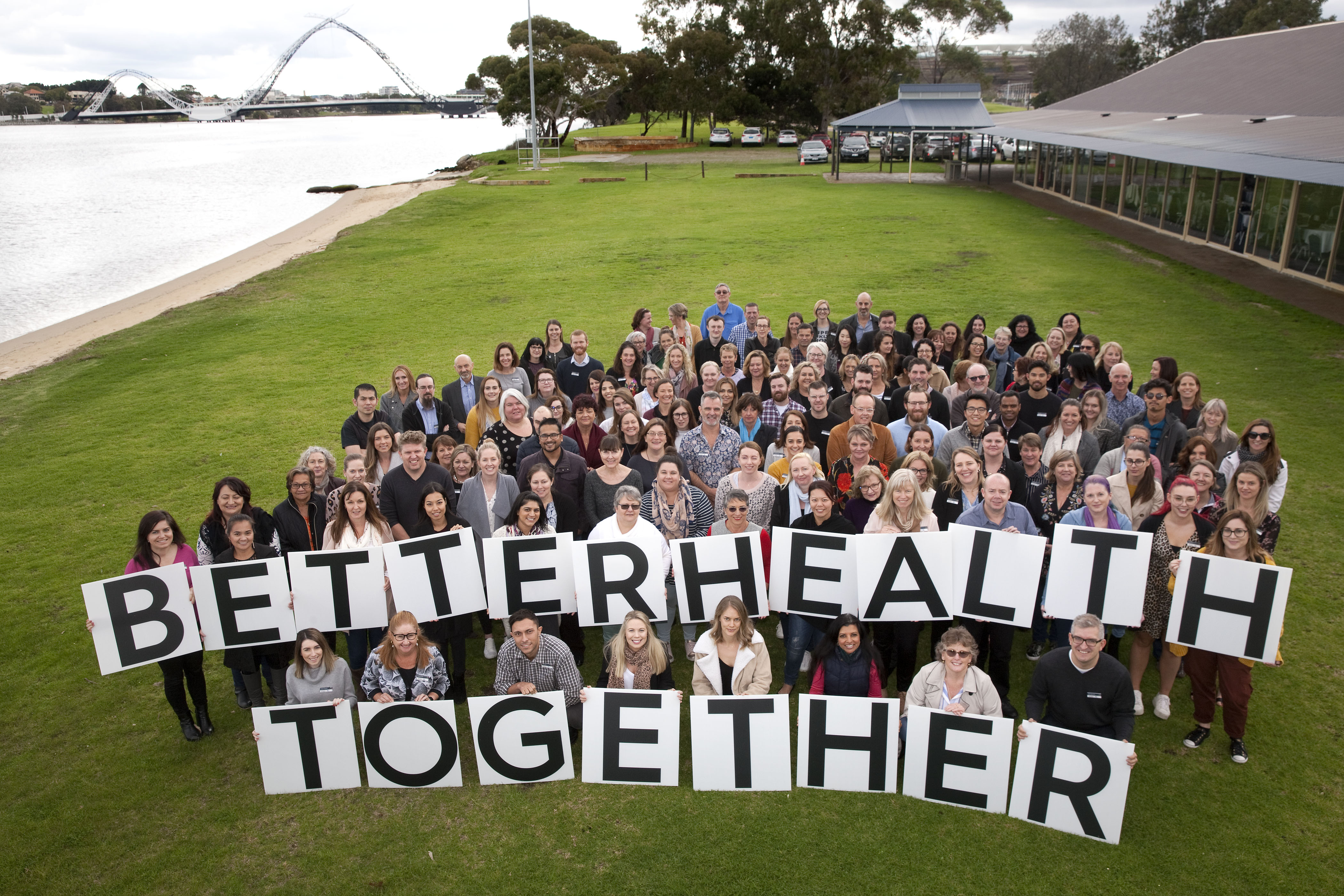Year in Review Highlights
![]()
Year At A Glance
99
General practices enrolled in our transformational change program
252
Programs funded to improve the health and wellbeing of Western Australians
10,716
People accessed one of our primary mental health services, a 67% year on year increase
7,610
People with chronic conditions supported by our integrated service across country WA, up from 6,800 last year
4,276
Health professionals and support staff attended one of our education events
442
30% more general practices partnered with us to better understand patient data to improve health outcomes
500
Localised HealthPathways reached, up from 411, 105 Pathways reviewed, and 25,000 users of this online tool for GPs
27,802
Contacts with our Practice Assist service – website visits, enquiries and support requests, a 58% year on year increase
21,500
Visits to our online engagement platform, Primary Health Exchange, an 159% year on year increase
100%
General practices and pharmacies across WA provided My Health Record information and offers of training
13
headspace services funded, including a new centre in Mandurah
5 million +
Views of our Inside My Mind depression awareness campaign
Our Priorities
Read about this year’s achievements and the great work being done with our key partners and the community to deliver better health, together.
Aboriginal Health Aged Care Alcohol and Other Drugs Digital Health
Health Workforce Mental Health Population Health

Aboriginal Health
Improving the health of Aboriginal Western Australians is a critical concern.
We support the authentic participation of Aboriginal people and organisations in all levels of decision-making affecting their health needs, to help achieve Aboriginal health equity.
- Increasing access to culturally appropriate primary healthcare.
- Increasing patient literacy so Aboriginal people are empowered to participate more fully in their healthcare journey and take control of their health.
- Improving system integration to ensure better experiences for Aboriginal people accessing multiple parts of the health and social care system.
Integrated Team Care: A program that works across multidisciplinary care models to support Aboriginal people to access well-coordinated, culturally appropriate mainstream primary care and supplementary services.
Integrated Team Care Country to City, Improving Patient Transitions: A project initiated in response to feedback relating to the challenges faced by Aboriginal people who were off-Country and staying in metropolitan areas for health treatment.
- Delivered close to 100,000 services to 3,700 Aboriginal people with complex chronic conditions through our Integrated Team Care program.
- Enabled 31 Integrated Team Care coordination staff to complete Flinders My Health Story and upskill in self-management techniques to reduce potentially preventable hospitalisations.
- Partnered with Mooditj Koort Aboriginal Corporation to trial an Integrated Team Care Country to City Service Model trial to demonstrate how metropolitan based services can support Aboriginal people travelling off-Country for hospital care in Perth.
- Provided resources to general practices to support patients to identify as Aboriginal or Torres Strait Islander, so they can access appropriate and culturally safe care.
Aged Care
We are committed to increasing access for older Western Australians to primary healthcare.

While many older Australians are living longer and healthier lives, many have mental and physical health concerns and lack appropriate access to primary care, as well as opportunities for social interaction and economic engagement.
- Improving older people’s access to timely and safe care
- Increasing the uptake of advance care planning
- Increasing the amount of GP-led over 75 health assessments
- Increasing the delivery of primary care in residential aged care facilities.
Psychological therapies in residential aged care facilities: A program to support older people living in residential aged care who are living with or at risk of a mental illness.
Compassionate Communities: A project in the Great Southern to increase awareness around end of life and empower people to live and die well in their place of choice.
Social connectedness: A two-year pilot project in Mandurah helping older people to become and remain connected to society through overcoming barriers to accessing community services.
- 600 medication management e-learning modules completed by aged care workers.
- Funded psychologists to deliver treatment services for people with, or at risk of, a diagnosed mental illness in residential aged care facilities. From January to June 2019, the service provided 179 consultations to 60 residents.
- Developed and launched e-learning modules for healthcare workers (who support the delivery of nursing care by assisting people with personal care and activities of daily living) in medication management, in collaboration with non-government organisations and WA Country Health Service. This was trialled with aged care providers in the Kimberley and Great Southern and 600 modules have been completed.
- Partnered with service provider Chorus to design, develop and implement the Out and About Social Connectedness Pilot, in Mandurah.

Alcohol and Other Drugs
Our focus is on providing services that respond to people as a whole.
People affected by alcohol and other drug (AoD) use, often experience co-occurring issues with mental health or have poor physical health. Our focus is on funding services that respond to the person and we encourage joining up of services to make it easier for people to get the support they need. We are also committed to improving the early detection of harmful AoD use, through screening and brief intervention in primary care.
- Investing in accredited, evidence-based and culturally appropriate treatment services in areas of high need for people who would otherwise have difficulty accessing services.
- Building capability within primary care to recognise and respond to AoD use in a holistic, person-centred way.
- Prioritising integrated solutions to increase access and improve effectiveness of responses to comorbidities inclusive of mental and physical health.
North Metro Community Alcohol and Drug Service Counsellor Inreach to General Practice: A program that embeds experienced counsellors in general practice to treat and support people experiencing harm from AoD use.
Alcohol and other Drug Training for Pharmacists: A workforce development initiative that increases access to AoD support by upskilling pharmacists to recognise and respond to problematic AoD use.
Milliya Rumurra Aboriginal Corporation Post Rehabilitation Continuing Care: A holistic, culturally safe program for people exiting residential rehabilitation who require additional support to recover from AoD use.
- Built the capability of general practices to support patients with AoD issues by increasing awareness and confidence to talk about these issues.
- Embedded counsellors to facilitate convenient and accessible access to non-stigmatised AoD services in a general practice setting.
- Expanded options for AoD services, through face to face training for pharmacists across seven country regions and two metropolitan areas.
- 90% of the Post Rehabilitation Continuing Care program’s clients surveyed believed their health will improve after receiving care and 67.5% reported reduced or ceased drug use.
Digital Health
Digital health helps us to identify priorities, link services, and fund options for better care.

Digital health is an enabler of primary healthcare, as we use data and technology to assist us in improving and providing a more coordinated approach. It is streamlining our healthcare systems, improving patient care and communication, and ensuring better informed treatment decisions. It is also helping address inequity due to workforce shortages and long distances.
- Enhancing access to health through telehealth for country clients and those who find it difficult to physically access primary healthcare services.
- Progressing towards meeting the National Digital Health Indicators, part of the PHN Program Performance and Quality Framework which PHNs are measured against, including the rates of:
- Healthcare providers informed by My Health Record
- Healthcare providers using specific digital health systems including smart forms, e-referrals and telehealth
- Accredited general practices sharing data with their PHN.
- Preparing general practices for Practice Incentives Program Quality Improvement (PIP QI), an Australian Government program that rewards practices for undertaking continuous quality improvement activities in partnership with their local PHN through the collection and review of practice data.
- Reached a total of 500 localised Health Pathways and reviewed 105 more for this online information portal, including referral and management pathways on a range of conditions which enable clinicians to better navigate the healthcare system.
- Supported 99 general practices enrolled in our Comprehensive Primary Care program to help ensure patient care is co-ordinated, accessible and locally based where possible.
- Increased the number of general practices sharing data with us by 30%, assisting practices to evaluate their performance.
- Increased successful data extraction within practices by 35%, despite significant changes to the scheme implemented within a short timeframe.
- Met or exceeded all My Health Record targets set by the Australian Digital Health Agency. as part of a specific agreement for the initiative’s rollout.
- Reached 100% of general practices and pharmacies, and over 1,200 allied health providers and 500 medical specialists to provide awareness and offers of training on My Health Record.
- Ran a state-wide community awareness campaign, including an innovative strategy to reach remote communities.
- 90.4% of Western Australians had a My Health Record at the end of the opt-out period, slightly above the national average.

Health Workforce
We build the capacity and capability of the primary healthcare workforce to help more people access the care they need.
Health workforce is an essential enabler that helps us to achieve our vision of equitable health outcomes for all Western Australians. By working with general practice and other health professionals, we are delivering better health together.
- Supporting primary healthcare providers to manage chronic disease populations and build capacity for patient self-management.
- Increasing access to allied health services and chronic disease management programs provided by allied health practitioners.
- Building general practice workforce capability to recognise and respond to alcohol and other drug related issues.
- Ensuring the capacity and capability of general practice in delivering urgent care is better utilised.
Non-Dispensing Pharmacist in General Practice Program: A program placing non-dispensing pharmacists into Comprehensive Primary Care Practices to facilitate the trialling of principles from the Quadruple Aim and the 10 Building Blocks of High Performing Primary Care.
GP Urgent Care: Laid the groundwork for an 18-month pilot to enhance capacity within community-based GP clinics to care for patients with urgent but non–life-threatening medical conditions, delivered in partnership with the Department of Health WA. It will help to decrease the almost one fifth of emergency department attendances that could be avoided by people seeking treatment in general practice.
- Enabled general practices to trial an innovative team-based care model through the Communities of Practice program.
- Integrated new health professionals into general practices, such as non-dispensing pharmacists and counsellors, with three of the six participating practices going on to employ their own pharmacist.
- Upskilled general practice reception staff to perform basic triage, source clinical information in patient files and assist with sterilising and organising pathology thus enabling health practitioners within the practice to work at the top of their scope.
- Finalised a model of GP urgent care that uses existing capacity and capability in general practice, with urgent care appointments able to be viewed and booked online.
- Received more than 120 expressions of interest from general practices in participating in the GP Urgent Care Pilot.
- Collaborated with the Royal Australian College of General Practice (WA) to update GPs in their urgent care skills.
Mental Health
Mental ill health is one the biggest health challenges for Western Australians.

More than 50% of our funding is dedicated to mental health programs that promote early intervention to reduce the impact and escalation of mental illness.
- Increasing access to local, low cost mental health services in areas with limited service availability but high demand.
- Building capacity within general practice to recognise and support patients with mental health conditions and ensure GPs are aware of clinical pathways and referral processes.
- Increasing access to early intervention services to prevent escalating acuity and reduce the burden on acute and emergency departments.
- Leading the implementation of the Alliance Against Depression (AAD), a key strategic approach to achieving the vision of health equity in WA.
- Finding the best approaches to suicide prevention for at-risk populations.
Practitioner Online Referral Treatment Service (PORTS): A service providing telephone and online treatments by registered mental health professionals to people experiencing financial and/or locational disadvantage. It plays a central role in ensuring equity for those in need of, and unable to, access face-to-face mental health services, with GPs having the option of referring directly to the service.
Joint Regional Mental Health Plans: A initiative of the Mental Health and Suicide Prevention Plan to promote collaborative and integrated planning and commissioning of mental health services to ensure those needing care can access the right services at the right time, in the right place by the right team. Their development requires collaboration between PHNs, Health Service Providers and the WA Mental Health Commission, and has been incorporated within the Sustainable Health Review.
Suicide Prevention Trials: As part of the national Australian Government Suicide Prevention Trial, we oversee threeTrials in Perth South, the Midwest and the Kimberley. Each site was selected due to its higher than average suicide rate. The Trials aim to find the most effective approaches to suicide prevention for at-risk populations and to share this knowledge across Australia.
Alliance Against Depression: The strong link between depression and suicide requires a focus on improving access to primary mental healthcare for all people. Based on evaluated trials, the AAD is an internationally accepted practice for the care of people with depression and in the reduction of suicidal acts. It has informed the activities within the Perth South and Midwest Suicide Prevention Trial Sites.
- Increased the total number of clients, service contacts and episodes of care provided from 6404 to 10, 716; 6532 to 11,441 and 50,268 to 93,479, respectively.
- Improved the mental health of most people engaging with our funded services, with between 57 to 74% of clients reporting significant improvement.
- Developed a Memorandum of Understanding with the WA Mental Health Commission (MHC) to help influence system-wide improvements across mental health suicide prevention, and alcohol and other drug services.
- Formed a project control group with the MHC and Department of Health WA to provide oversight and guidance during the development of WA’s Joint Regional Mental Health Plans.
- Partnered with the MHC to co-fund the Active Life Enhancing Intervention (ALIVE) program that facilitates better linkages between service providers for people being triaged from metropolitan hospitals following a suicide attempt.
- Formed national partnerships to deliver activities for at-risk communities, including training and resource development for GPs with the Orygen National Centre for Excellence in Youth Mental Health, Lived Experience workshops with Roses in the Ocean and Workforce Development Training with the National LGBTI Alliance.
- Designed and deployed the Inside My Mind campaign, which was seen more than five million times, featuring people with lived experience who encourage others to recognise and seek help for depression and anxiety.
- Improved help seeking behaviours among 53% of vulnerable young people surveyed in Perth South.
- Approved eight Community Action Plans and employed seven Community Liaison Officers across the Kimberley.
- Supported the Kimberley Empowered Young Leaders Project to run two youth forums.
- Created better outcomes for the communities involved in the Kimberley Trial, despite the challenge of balancing time constraints to ensure local people felt heard and respected regarding their local and cultural knowledge.
- Travelled 15,285 kilometres, the equivalent of crossing Australia three times, across the Midwest, to combat the challenge of reaching men who are isolated and working in rural locations,spread across the Midwest.
- Coordinated 51 training activities for 1,368 GPs and community members in the Midwest to build community capacity and, ultimately, a sustainable suicide prevention plan.
- Launched the Kwinana Alliance Against Depression, WA’s first grassroots local Alliance.
- Completed a full suite of localised resources to support local Alliances which have been shared globally by the European AAD.
- Designed and launched an GP Training video that delivers a contemporary perspective on how to effectively identify and manage depressed patients in primary care. The resource is being used at the Rural Clinical School of WA and has been shared throughout the European AAD global network.
- Worked with the Perth South Suicide Prevention Trial team to support the Shires of Murray and Waroona to deliver AAD projects focusing on Aboriginal and Torres Strait Islander youth.

Population Health
Improving population health contributes to the wellbeing of communities across our State.
By funding services to care for people with chronic conditions and supporting general practices to keep up to date with changes in immunisation and cancer screening, we are delivering better heath, together.
- Improving the management of chronic disease in primary care and reducing rates of potentially preventable hospitalisations by working with primary care providers to target specific areas of need.
- Increasing childhood immunisation rates within regions not meeting national immunisation targets.
- Increasing access to cancer screening programs, by working with general practice and other stakeholders.
Integrated Chronic Disease Care: A service that provides country-based clients access to clinician treatment services and supports them to maintain independence, self-manage their condition and, most importantly, improve their health and wellbeing.
Immunisation Updates: An activity, in partnership with Department of Health, Communicable Disease Directorate, to update nurses on the Australian Immunisation Register Digital Handbook, HealthPathways WA and the ‘No jab, no pay’ policy, and to identify and support general practices with high numbers of overdue and incomplete immunisations.
Cancer Screening Plan Do Study Act: An initiative, co-designed with Cancer Council WA, with input from WA Cervical Cancer Prevention Program, BreastScreen WA and WA Cancer and Palliative Care Network, that implements quality improvement screening activities.
Chronic Heart Failure: A initiative to explore collaborative action on chronic heart failure and to increase capacity in primary care to manage patients living with this condition, as effective long-term management is key to reducing hospitalisations and improving survival rates.
Chronic Obstructive Pulmonary Disease Service: Delivered in partnership with Joondalup Health Campus and Silver Chain, this service helps people being discharged from hospital to keep on top of their condition and stay well in the community.
Obesity: Acknowledging the critical role primary care plays in prevention, WA Primary Health Alliance has formulated a plan to tackle obesity. We aim to:
- Improve access to evidence-based person-centred primary care for Western Australians with weight management challenges.
- Enable GPs to use their skills as expert generalists to manage this public health issue.
- Support people to reach a healthy weight and reduce their risk of chronic disease.
- Reached a total of 7,610 Integrated Chronic Disease Care clients, a significant proportion of whom report mental health conditions, adding a complexity that can impact on the client achieving self-management.
- Funded Chronic Disease Project Officers in partnership with WA Country Health Service who work with our funded Integrated Chronic Disease Care providers to establish joint referral pathways, improve system connectedness and reduce service delivery duplication.
- Supported a cervical screening self-collection pilot project run by WA Cervical Cancer Prevention Program, with seven practices having completed the pilot and 33 more enrolled for a combination of breast, bowel and cervical activities.
- Completed Phase 1 of the Chronic Heart Failure Project, including planning for and funding nine initiatives to increase capacity in primary care and empower consumers, which included:
- Establishing six chronic heart failure nurse-led clinics.
- Increasing the capacity of local exercise physiologists to work with complex patients enabling care closer to home, reducing dependency on hospital services and up skilling workforce.
- Trialling a telehealth cardiac rehabilitation program to improve health outcomes for country patients with limited access to rehabilitation.
- Developing teaching vignettes for GPs, with feedback from cardiologists, in the contemporary treatment of chronic heart failure.
- Participated in the development of WA’s Healthy Weight Action Plan, which has a clear focus on early intervention and management of overweight and obesity in primary care.
- Attended the National Obesity Summit to represent Australia’s 31 Primary Health Networks (PHNs), ensuring primary care is integral in the development of multi-faceted and community wide approaches to addressing overweight and obesity.
People and Culture
The key to success lies with our people, our most important asset.

Our people and culture mission is to provide an environment that helps employees feel connected to their workplace, where they have a sense of purpose and fun in their day to day work, and where they can play their part in delivering better health, together.
We do this by attracting, recruiting and retaining talented employees, building their capability and supporting their career development in an environment where employees feel motivated and supported to achieve their best.
- Running a staff led organisational cultural development program that embeds our organisational values of integrity, humility, courage, wisdom and respect.
- Introducing a 12-month staff communication development program that utilises humour as a vehicle for transferring knowledge.
- Implementing a learning and development strategy to build workforce capability.
- Achieved 61.5% staff engagement via the Best Practice Benchmarking Study, which equates to a ‘culture of success’.
- Created and implemented a learning and development strategy and two Learning Management Systems.
- Achieved 88% staff participation rate in our culture survey, with 18 out of 23 questions being above the benchmarking norm reflecting how we put our values into action.
- Implemented a Health and Wellbeing strategy.
- Encouraged leadership development through supporting line managers to participate in the Leadership Success program.
In 2018, we began our journey towards achieving Rainbow Tick accreditation, which involves meeting the six national standards of LGBTI inclusive practice.
Given our vision of equitable health outcomes for all Western Australians, WA Primary Health Alliance has an important leadership role to advocate for safe, inclusive and culturally appropriate services for LGBTI people.
This reflects our genuine commitment to promoting LGBTI pride, diversity and inclusion within the organisation and within the primary and social care sector and contributes to achieving our vision of equitable health outcomes for all Western Australians.
Our Priorities
- To achieve accreditation and embed LGBTI-inclusive practice within our organisational practices, policies and workplace systems.
- To support LGBTI people to have better health and wellbeing outcomes, and to improve their access to and experience of primary care.
Achievements
The following achievements would not have been possible without the commitment of our Board and Executive team, the collective effort of the Rainbow Tick Steering Group and the support of all staff in various ways across the past year.
- Addressed significant gaps in policies and practice identified during a review of LGBTI inclusivity within the organisation.
- Provided staff with training to support a shared understanding of LGBTI history, language and health needs.
- Became a member of the ACON Welcome Here Project, a national initiative that enables businesses to register their organisation as a safe place for LGBTI people.
- Sponsored Pridefest and marched in the 2018 Pride Parade.
- Forged relationships with LGBTI community and service organisations, such as Trans Folk of WA and GLBTI Rights in Aging.
Financial Snapshot
Our funding of community based treatment and support services has increased by 150 per cent over the four years since our inception, to reach $100 million in 2018 -19.
Mental Health and Suicide Prevention
$49.1m
Aboriginal Mental Health
$4.8m
Flexible Funding
$15.9m
Innovation Funding
$0.3m
Health Care Homes
$0.2m
Greater Choice for At Home Palliative Care
$0.3m
Integrated Team Care
$9.1m
After Hours
$6.3m
Drug and Alcohol Treatment Services
$8.2m



